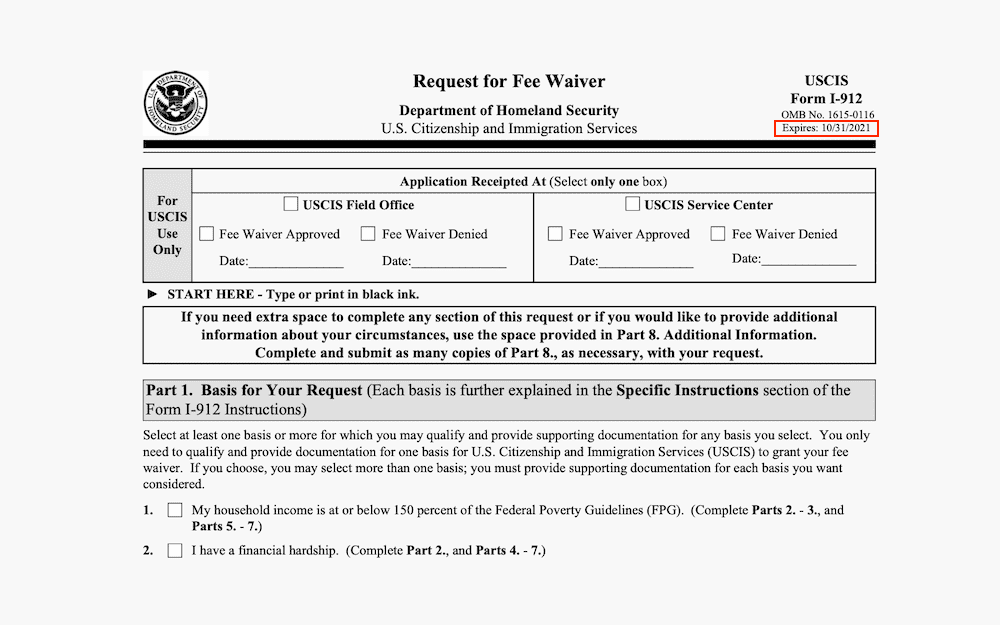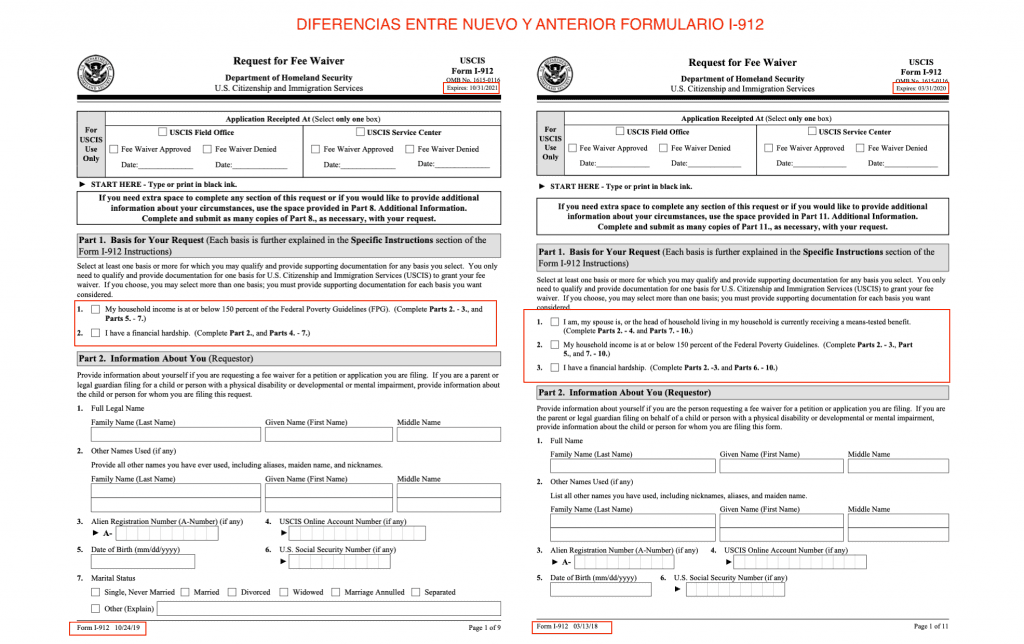U.S. Citizenship and Immigration Services (USCIS) announced that it will change the criteria under which an individual may qualify for a fee waiver.
As of December 2, 2019, USCIS will not accept as evidence to determine exemption from payment of fees for certain immigration procedures or biometric services, the sole purpose of the exemption is to receiving public benefits.
USCIS previously considered Medicaid, Supplemental Nutrition Assistance Program (SNAP, also known as food stamps), Temporary Assistance to Needy Families (TANF) and Supplemental Security Income (welfare) during eligibility evaluations.
But the agency has determined that receipt of these types of benefits is not an appropriate criterion for reviewing fee waiver requests, because the income levels used to decide eligibility for assistance programs vary considerably from state to state.
What are the new criteria for requesting a fee waiver?
- The individual must provide proof that the annual household income is equal to or less than 150% of the Federal Poverty Guidelines; o
- The applicant must demonstrate financial hardship.
USCIS will require applicants to complete the Form I-912 and submit supporting documentation, including federal income tax transcripts issued by the Internal Revenue Service (IRS).
USCIS will not accept letters stating that the applicant is unable to pay filing fees or biometric services without a completed Form I-912.

Why is USCIS changing the fee waiver criteria?
"USCIS relies on fees to cover the costs of adjudicating applications and petitions, implementing operational efforts, and ensuring that the nation's legal immigration system is properly managed," said USCIS Acting Director Ken Cuccinelli.
The 95% annual USCIS budget is based on the fees they collect. Congress designed the system so that USCIS would generally be self-sufficient - that is, the fees would cover the operational costs of processing petitions or applications for immigration benefits. But fee waivers, according to the agency, have hurt the system.
"USCIS waives hundreds of millions of dollars in fees annually. The revised fee waiver process will improve the integrity of the program and the quality and consistency of fee waiver approvals in the future," Cuccinelli said.
According to figures provided by USCIS, in fiscal year 2017, approved $$367.9 million in waivers of payment. They estimate that $293.5 million in fee waivers were granted in fiscal year 2018..
Recommendations:
- File petitions or applications for immigration benefits as soon as possible if eligible.
- Include any necessary documentation to demonstrate the need for a fee waiver.
- Never lie, hide assets or income. This is severely penalized.
Pro-immigrant groups announced that they will sue the federal government by this change in immigration policy. However, you should not count or wait for that to happen. Act as soon as possible to make the necessary immigration arrangements before the government implements the changes.
New Form I-912P must be used
Effective December 2, to apply for a fee waiver individuals must file the 10/24/19 version of Form I-912P.
They should verify that they are submitting the correct form.
USCIS will reject any Form I-912 with an issue date of 03/13/18 or earlier, or any fee waiver request filed without a Form I-912 postmarked after December 2.
Fee waiver requests postmarked prior to December 2 will be accepted in accordance with previous policy, AFM 10.9, Waiver of Fees.
USCIS also updated the policy guidance in the USCIS Policy Manual to supplement the revised form. The updated policy guidance applies only to the revised Form I-912 and is effective immediately.
The new form does not change the applications and requests that are eligible for a fee waiver.


